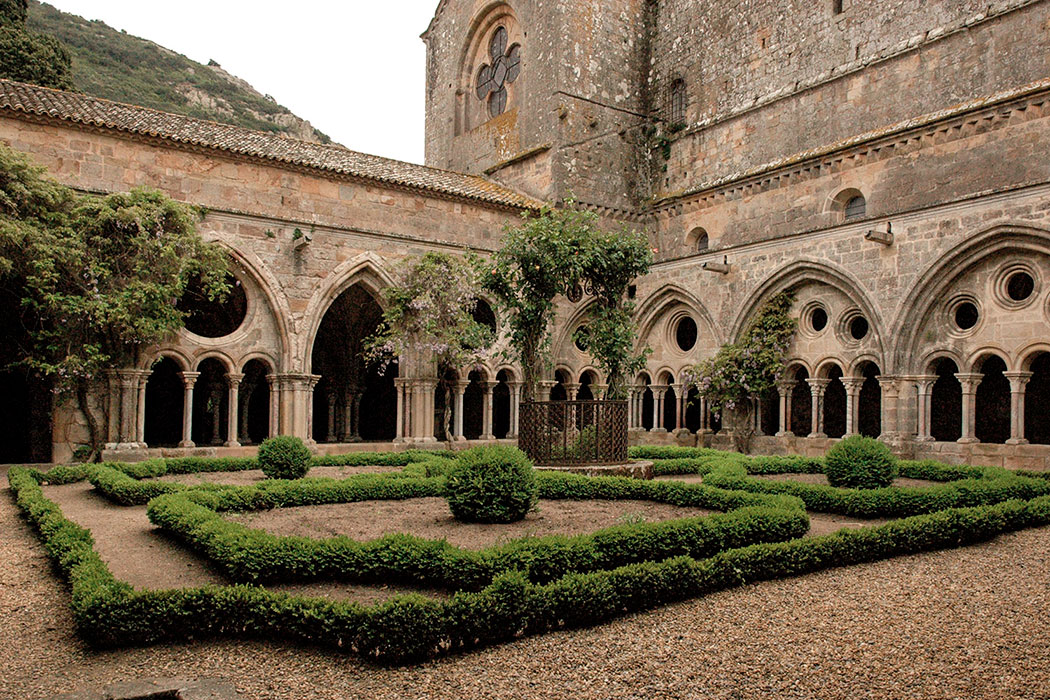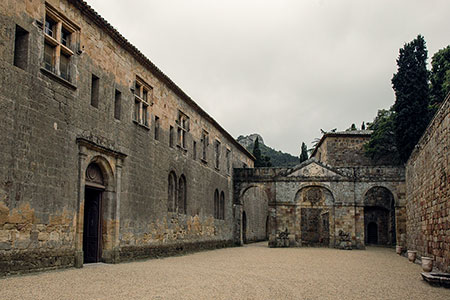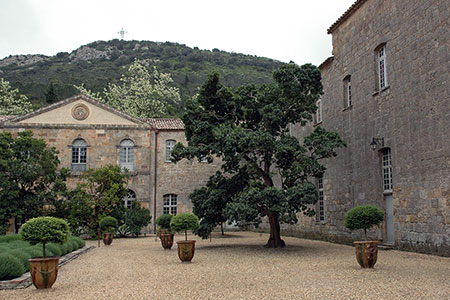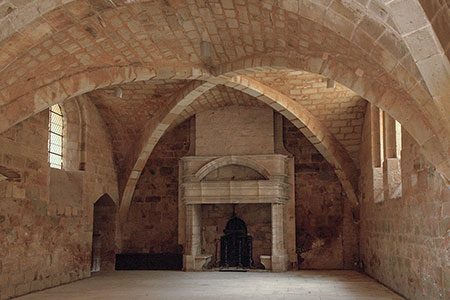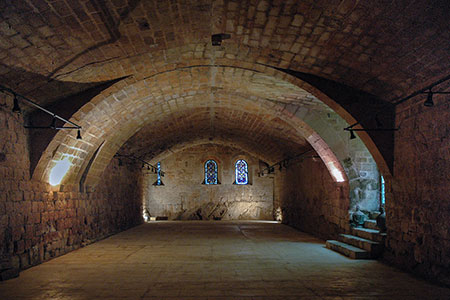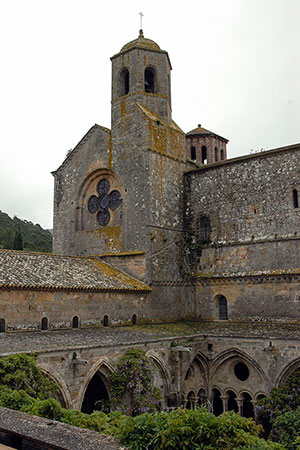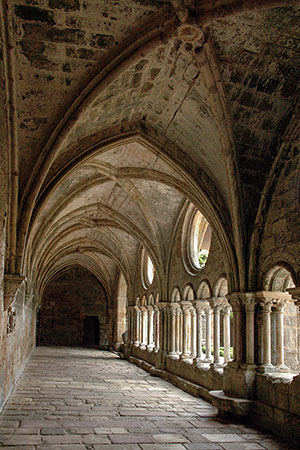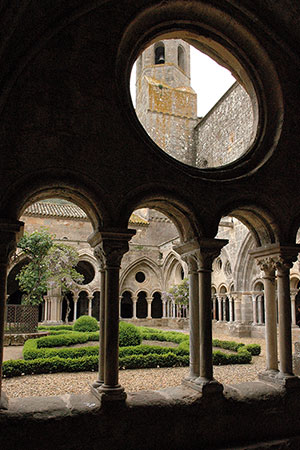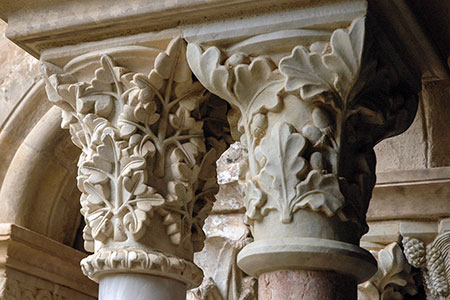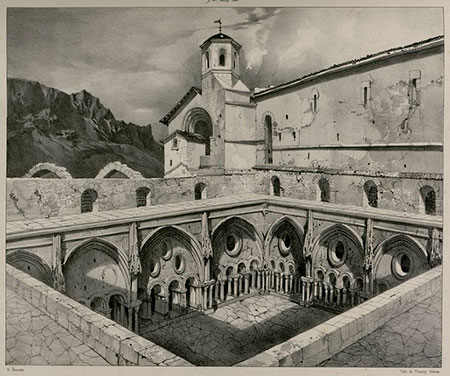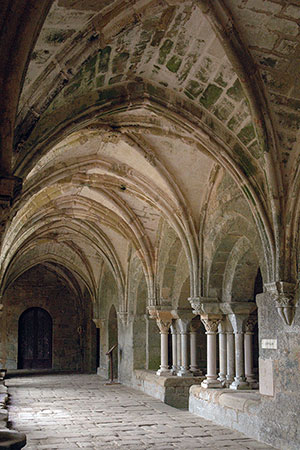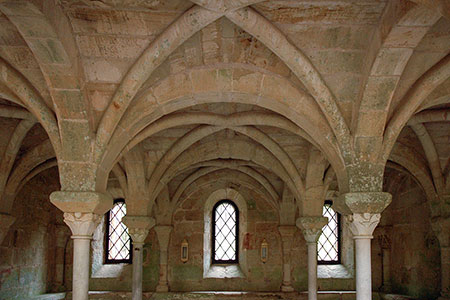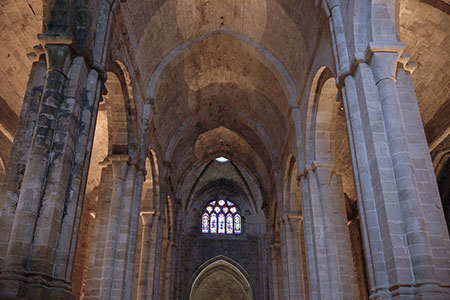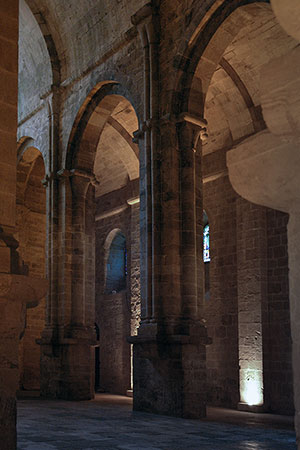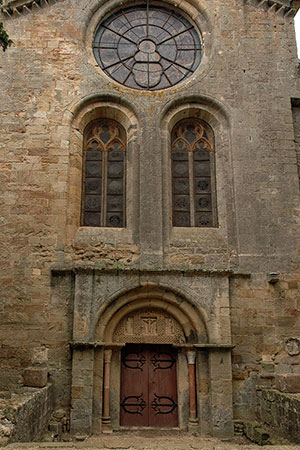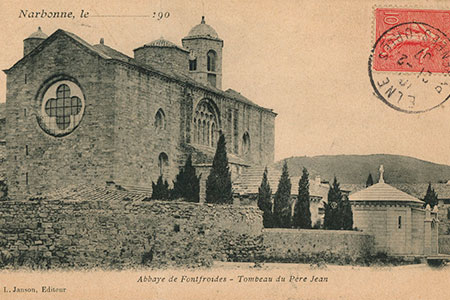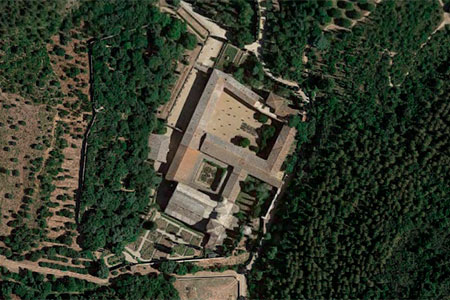The Cistercian abbey of Fontfroide would have its origins in a first monastery that in 1093 was established in these lands thanks to the support of Viscount Aymery I of Narbonne, possibly bringing together some establishments of an eremitic nature spread throughout this territory, that first house would have followed the rule of Saint Benedict.
In 1144, the community of Fontfroide turned to the abbey of Grandseve (Tarn-et-Garonne) in order to place itself under Cistercian guidelines, and thus became a ‘daughter’ of that Gascon monastery. In turn, it was from the abbey of Fontfroide that, in 1151, the monastery of Poblet was founded in Catalonia. The monastery became a key centre in the fight against Cathar doctrine, and Pope Innocent III appointed two legates chosen from among the members of this abbey to defend Catholic orthodoxy against the heresy. This pioneering position proved profitable for the monastery, which benefited from the Cathars' possessions. The 14th century coincided with a period of prosperity, led by powerful and influential abbots, such as Jacques Fournier (abbot from 1311 to 1317) who became bishop and later pope under the name of Benedict XII (1334-1342).
In 1476, Fontfroide came to have commendatory abbots, who benefited from the office and the revenues, but had no strict obligations towards the monastery. This situation deeply impoverished the community, while the offices of abbot passed into the hands of powerful families. Due to this situation, in 1764, the abbey title was abolished, and the monastery and its assets were transferred to the bishopric of Elne. At the end of the 18th century, improvements were still being made. This situation lasted until the Revolution and in 1791 it began to be dismantled, the place passed into public ownership and into the hands of the Hospice of Narbonne, which in 1833 sold it to a private individual, from then on, the valuation and recovery of the buildings began.
Between 1858 and 1901 there was an attempt at monastic recovery, which was not continued. In 1908 it returned to private hands and its recovery and restoration was promoted. The architectural ensemble is important and includes the convent church, the cloister with its annexes and the abbey palace. The church was begun in the mid-12th century and has three naves with a transept; five chapels were added to the south nave in the 14th century. The cloister was begun in the 12th century and extensively renovated in the 13th century. The capitals are decorated with floral motifs. In the east gallery there is a magnificent chapter house, built between the 12th and 13th centuries.
Affiliation of Fontfroide
According to Originum Cisterciensium (L. Janauschek, 1877)Abbey of Grandseve (Tarn-et-Garonne) / 1145
Sainte-Marie de Fontfroide / 1146
Monastery of Poblet (Conca de Barberà) / 1151
Monastery of Vallbona (Roussillon, Pyrénées-Orientales) / 1242
- ANDOQUE, Nicolas (2008). Ancienne abbaye cistercienne de Fontfroide. Moisenay: Gaud
- ANDOQUE, Nicolas d’; i altres (1996). Antiga abadia cistercenca de Fontfreda. Moisenay: Gaud
- CAUVET, E. (1875). Étude historique sur Fonfroide. Montpeller: Seguin
- DIMIER, Anselme (1971). Fontfroide. Dictionnaire d’histoire et de géographie ecclésiastiques. Vol. 17. París: Letouzey et Ané
- FAURE, Hippolyte (1894). Recherches historiques sur l’abbaye de Fontfroide. Narbona: Caillard
- GRÈZES-RUEFF, François (1977). L'abbaye de Fontfroide et son domaine foncier aux XIIe-XIIIe siècles. Annales du Midi, núm. 133
- JANAUSCHEK, Leopoldus (1877). Originum Cisterciensium. Vol. 1. Viena
- LEENHARDT, Camille (1911). Fonfrède-Fontfroide. Quelques notes tirées de ses archives, 1185-1910. Cahors: Coueslant
- REBIÈRE, Jean-Loius (2020). Le cellier de l’abbaye de Fontfroide. Oculus: Bulletin de l’abbaye de Fontfroide, núm. 23
- SAINT-MAUR, Congregació de (1739). Gallia Christiana in provincias ecclesiasticas distributa. Vol. 6. París: Typographia Regia
